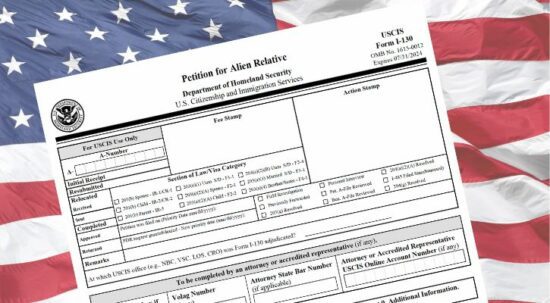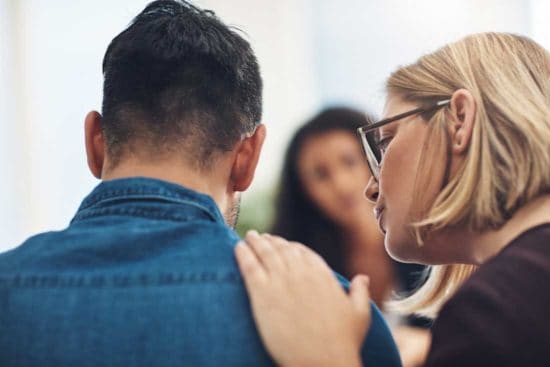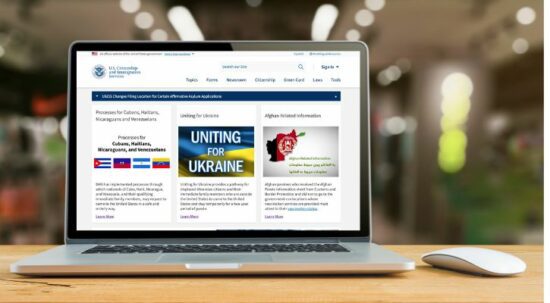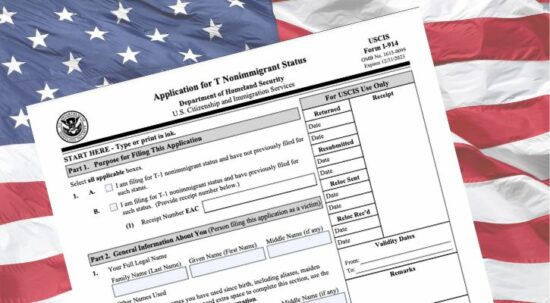The U.S. government offers immigration protection for certain victims through the U.S. Citizenship and Immigration Services (USCIS). U visa is for victims of serious crimes and T visa is for victims of human trafficking.
What is a U visa?
U visas (also called U nonimmigrant status) are for victims of serious crimes who have suffered substantial mental or physical abuse. Serious criminal activity for this includes:
- Abduction or kidnapping
- Rape or sexual assault
- Forced prostitution
- Blackmail or extortion
- Domestic violence
- Forced labor
- Hate crimes
- Torture
People with U visas get nonimmigrant status for 4 years. Nonimmigrant status means it is temporary. They may be able to get a Green Card to stay in the United States if they meet certain requirements.
U-Visa holders can:
- Manatili sa USA hanggang 4 na taon
- Magtrabaho nang legal sa U.S.
- Iwasan ang detensyon at deportasyon
- Humiling ng legal status para sa pamilya
- Mag-apply para sa isang Green Card upang manatili nang permanente kung natutugunan ang mga requirement
| U visas are still available under the current U.S. government. You can apply for a U visa and continue to receive U visa benefits. If you have questions, talk to an immigration lawyer. |
Sino ang maaaring mag-apply?
You can apply for a U visa if you meet each of the following requirements:
- You are a victim of a serious crime.
- You suffered serious physical or mental abuse.
- The crime happened in the USA or the criminal activity violates U.S. laws.
- You have information about the crime.
- You helped or are willing to help law enforcement in their investigation.
- You meet U.S. admissibility requirements or have a waiver. You might be inadmissible if you have committed certain crimes or pose a threat to the public. If you do not meet admissibility requirements you may still be eligible to apply if you have a Form I-192. A legal representative can help you with this.
If you are under 16 or you cannot provide information due to a disability, someone you trust may provide details about the crime.
Paano ako mag-apply?
You apply for a U visa through USCIS. It does not cost anything to apply. You will need to:
- Complete Form I-918.
- Provide evidence you have been a victim of a serious crime.
- Provide evidence that you have suffered mental or physical abuse.
- Kumuha ng sertipikasyon mula sa pagpapatupad ng batas gamit ang For m I-918, Supplement B na nagsasaad na tinutulungan mo ang kanilang pagsisiyasat.
- Include a personal statement about your experience.
- Complete Form I-765 to apply for work authorization to submit with your application.
You will mail your forms to either the USCIS Nebraska or Vermont Service Center depending on your state.
| Mahalagang humingi ng legal na payo. Makakatulong sa iyo ang isang abogado o isang accredited na representative para malaman mo kung kwalipikado ka at para makumpleto mo ang aplikasyon mo. |
When you apply you will need to collect evidence to show that you meet the requirements. One part of this is a certification from law enforcement.
The other part is that you have to show that you have serious mental or physical abuse. Examples of this supporting evidence could be:
- Mga dokumentong medikal
- A statement from a therapist
- Legal na papeles
- Letters from social services
- Letters from family or friends who know about your situation
Your application will also include a personal statement, also called an affidavit. This is your chance to tell your story and explain what happened in your own words. Include information in your statement that shows how you meet the requirements. If you are missing other documentation, you can explain why in your statement.
Oo, maaari mong isama ang ilang miyembro ng pamilya sa iyong aplikasyon:
- Kung ikaw ay 21 taong gulang o mas matanda, maaari mong isama ang iyong asawa at mga anak na wala pang 21.
- If you are under 21, you can include your spouse, children under 21, parents, and unmarried siblings who are under 18.
You must file Form I-918, Supplement A for family members. If approved, your family members will receive a derivative U visa. You can file this at the same time as your application or at a later time.
In some cases, your family members may be considered indirect victims. If so, they can apply for a U visa as the main applicant. A legal representative can help you choose the best option.
Pagkatapos mong i-file ang iyong aplikasyon, makakatanggap ka ng receipt notice. Ang paunawa na ito ay magkakaroon ng impormasyong kakailanganin mo upang suriin ang katayuan ng iyong kaso.
Susuriin ng USCIS ang iyong aplikasyon at maaaring humingi ng karagdagang impormasyon. Maaari kang mag-iskedyul para sa isang biometrics appointment upang magbigay ng litrato, fingerprints, at iyong lagda.
Makakakuha ka ng desisyon sa mail.
Currently, the average processing time for U visa cases is 3 years.
You may be eligible for some benefits while you wait. This can be deferred action or parole to protect you from deportation and allow you to work. You can get these benefits in 2 ways:
- Waiting list. There is a limit on the number of U visas available to primary applicants each year. If the cap has been reached, you will be put on a waiting list while you wait for a final decision and a visa.
- Bona Fide Determination. In some cases, USCIS will do a basic review to make sure your application is complete and do a background check. If this passes, they will give you a bona fide determination.
Each case is different, and some may take more or less time to complete. You can track the status of your case online or send questions to the USCIS Nebraska or Vermont Service Center.
If your U visa petition is denied you will have the same immigration status you had when you applied. However, you may be able to appeal your decision.
You might also qualify for other forms of protection including VAWA, temporary protected status, or other humanitarian programs. Contact an immigration attorney or accredited representative to review your options.
If you have a pending application, it is very important to talk to a legal representative to find out if you can safely travel abroad. If you leave the country while your application is pending, you may not be allowed to return. Leaving the country could also put your case at risk.
Once you have an approved U visa, you can apply for advanced parole to travel outside of the USA. It is important to know that any time you leave the country with a temporary visa, you risk being denied reentry. Travel outside of the USA may also create problems for your Green Card application. A legal representative can provide more guidance.
You may be eligible for benefits if you live in certain states. U-visa holders do not receive federal benefits. Some states, including California, provide state-funded benefits like food and income support. The rules are different in each state.
You can go to your local Department of Health and Human Services to learn more.
U visas are only valid for 4 years. If you do not adjust your status or renew your visa before it expires, you will have the same immigration status you had before getting your U visa.
You are encouraged to apply for a Green Card before your status expires. If you do not apply for a Green Card, you may be able to extend your U visa status in certain situations by filing Form I-539.
Qualifying reasons for a U visa extension include:
- Mga eksepsyonal na sitwasyon
- Kahilingan mula sa tagapagpatupad ng batas
- Mga delay sa pagproseso sa konsulado (consular processing)
- Naka-pending na aplikasyon para sa Green Card
You may still face immigration enforcement even if you have applied for or been approved for a U visa.
- Always carry your immigration documents and proof of two years of residence. Make sure you have copies of your receipt, bona fide determination, approval notices, and work permit on you.
- I-save ang contact information para sa tagapagtaguyod (advocate) at abogado na kasangkot sa kaso mo.
- Maging handa para sa ICE. Alamin kung ano ang gagawin kapag pinahinto ka ng mga immigration officer. Alamin ang mga karapatan mo at kung paano gumawa ng safety plan.
Work permit
You can apply for a work permit at the same time you apply for a U visa. A work permit is also called an Employment Authorization Document (EAD). An EAD shows employers that you are allowed to work in the USA.
To apply you will submit Form I-765 at the same time you send your Form I-914. For family members, you will send this in with Form I-914, Supplement A.
If you already filed your U visa petition and did not include this form, you can submit it later.
If you are on the waiting list or receive a bona fide determination for your U visa you may get work authorization while your case is pending. If you did not complete Form I-765 with your initial U visa application, you can file Form I-765 after getting notice from USCIS.
Green Card
If you are approved for a U visa, you can apply for lawful permanent residence and get a Green Card. In most cases, you must have lived in the USA for 3 continuous years and meet other requirements.
To apply for a Green Card you will need to file Form I-485. Learn about the requirements and process for a U-visa holder.
Kung inaprubahan para sa Green Card, maaari kang maging karapat-dapat na mag-apply para sa citizenship (pagkamamamayan) pagkatapos ng 5 taon.
Ang iyong kaligtasan
Pananatilihin ng USCIS na kumpidensyal ang lahat ng iyong impormasyon. Hindi nila ibabahagi ang iyong impormasyon nang walang pahintulot mo maliban sa mga bihirang kaso.
Kung hindi mo nararamdaman na ligtas ang pagkuha ng mail sa iyong bahay, maaari kang makakuha ng isang ligtas na address na maaari mong gamitin sa mga application.
Many undocumented immigrants worry that if they report a crime, they may be deported. The U visa program is there to help people who are victims of crimes and make it safer to report them. You are not required to have legal immigration status to apply for a U visa.
Maghanap ng tulong at suporta
Legal na Tulong
Mahalagang humingi ng legal na payo habang pinag-iisipan mo ang mga opsyon mo. Makakatulong sa iyo ang isang abogado o isang accredited na representative para malaman mo kung kwalipikado ka at para makumpleto mo ang aplikasyon mo. Maraming organisasyon at abogado ang nag-aalok ng libre o murang legal na tulong.
Domestic violence help
Call the National Domestic Violence Hotline at 800-799-7233 or text START to 88788. You can speak to a person 24 hours a day, 7 days a week. Interpreters are available in over 140 languages.
Your abuser may check where you go on the internet. Be sure to regularly clear your browser history or use a safe device like a friend’s phone or public library computer. Learn more about getting help for domestic violence.
Tumawag sa 911 kung ikaw ay nasa agarang panganib.
Emosyonal na suporta
Survivors of serious crimes may experience trauma, leading to sadness or depression. Getting mental health support can help you feel better. Learn more about trauma and where to find help.
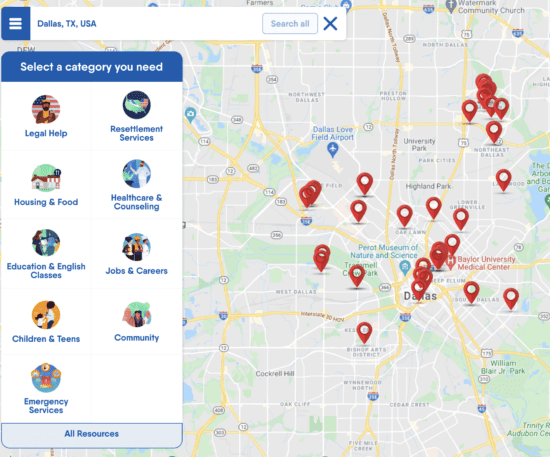
Maghanap ng legal na tulong, mga klase sa Ingles, mga klinika sa kalusugan, suporta sa pabahay, at marami pa. Maghanap ng isang lokal na mapa at listahan ng mga serbisyo para sa mga imigrante sa USA gamit ang app FindHello.
Ang impormasyon sa page ito ay mula sa USCIS, WomensLaw.org, at iba pang mga mapagkakatiwalaang source. Layunin naming mag-alok ng impormasyong madaling maintindihan at regular na naa-update. Hindi legal na payo ang impormasyong ito.

